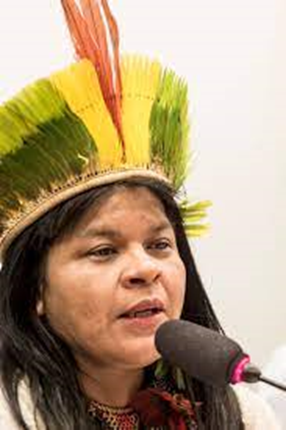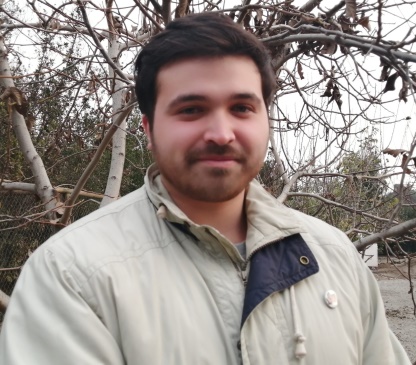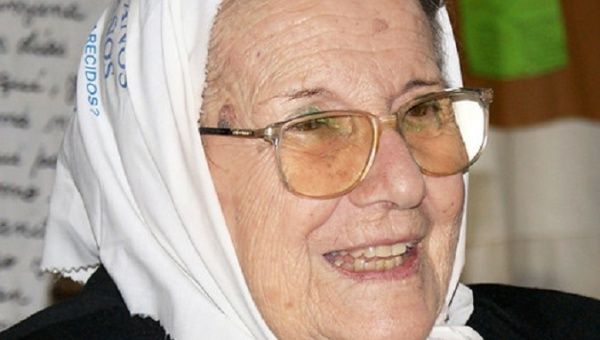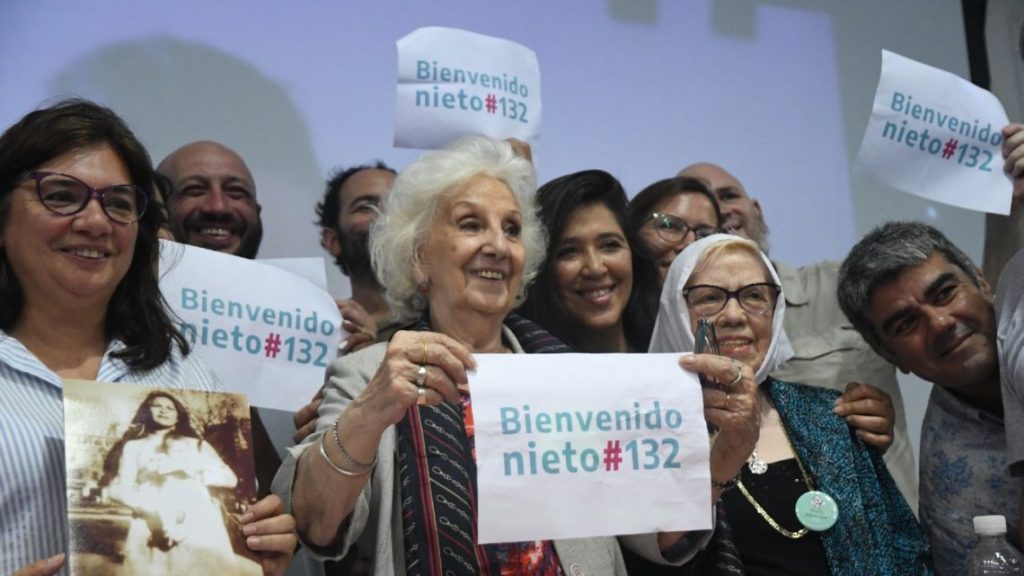PERU 
Peru’s political crisis erupted in violence in December following then-President Castillo’s attempt to dissolve Congress on 7 December, his immediate impeachment by Congress and the installation as President of Vice-President Dina Boluarte. Protests, sometimes violent, in Lima and other major cities were met with excessive use of force by security forces. According to the Ombudsperson Office, seven people died, including two adolescents, all by firearms, and dozens of protesters and journalists were injured.
Amnesty has issued an Urgent Action asking activists to write to the Peruvian President calling on her to put an end to all excessive use of force against demonstrators, use all available resources to safeguard the life and integrity of all injured persons, provide the necessary support to the families of the deceased and collaborate with authorities investigating all allegations of human rights violations in the context of the current crisis promptly, thoroughly, independently, and impartially. Here is a letter you can download and personalise.
COLOMBIA
Following its three reports on the excessive use of force by the National Police (PN) during the National Strike – on use of firearms, use of non-lethal weapons and now gender-based violence – Amnesty International is working with 15 Colombian NGOs and the authorities on police reform. Proposals include demilitarisation of the PN, placing them under civilian control and the civil courts, a wholesale change in how the PN measures its effectiveness and to place human rights at the centre of its recruitment, training and promotion policies. President Petro and Defence Minister Velasquez are committed to police reform.
The Colombian Programa Somos Defensores (We are Defenders) has published its first report on the killing of Human Rights Defenders and social leaders in English. Up until now, their unique reports have been only available in Spanish, so this is a great opportunity for English speakers to understand what is happening on the ground and why so many HRDs, social leaders and their communities are targeted by armed groups.
Colombian President Gustavo Petro has achieved something which appeared to be impossible: a bilateral ceasefire agreement with five armed groups for a period of six months. Petro stated the five paramilitary organizations that had signed up to the accord are the National Liberation Army (ELN), two dissident groups of the Revolutionary Armed Forces of Colombia (FARC), the Gaitanist Self-Defence Forces of Colombia (also known as the Gulf Clan) and the Self-Defence Forces of the Sierra Nevada.
However, Colombia Reports discusses the reasons why the major armed groups in Colombia – the AUC narco-paramilitaries and FARC dissident and ELN guerrillas – are expanding into the cities and how this could derail the new Government’s plans for ‘Total Peace’. These follow the absorption of smaller armed groups by the three major groups in rural Colombia, leaving the cities as the new area of focus. These trends are identified by the Colombian think-tank Indepaz and they have mapped out the territories where each of these three major groups are now active.
Internal Displacement Monitoring records two further forced displacements of rural communities in Colombia in December 2022. In the department of Nariño, 624 people of the indigenous Awá community fled from fighting between two non-State armed groups while 191 members of a peasant farming community fled fighting in the department of Putumayo.
Peace Brigades International reports on the pressures that are forcing communities bordering on the Atrato river off their land and how communities are attempting to recover their land. ‘In particular, the Bajo Atrato, and the Urabá subregion have registered around 429,820 victims of forced displacement, dispossession, and selective murders, among other serious human rights violations.’ And ‘The actions of the banana, palm oil, and mining industries, tied to armed actors, have contributed to a dispossession of ethnic communities from their lands amid grave state omissions relative to protection guarantees.’
BRAZIL

In one of his last acts as President, Bolsonaro has extinguished the Special Commission on Deaths and Disappearances during the military dictatorship of 1964 to 1985. Amnesty has denounced this as the Commission has not yet completed its prime objective to identify, locate and deliver all the bodies of political opponents for a dignified burial and to indemnify and provide reparation to the victims’ families. To date, the Commission has identified 434 deaths and disappearances, which is believed to be far fewer than those who were killed by the military.
President Lula took office on 1 January. He has said that public services in Brazil face a “very real threat of collapse” as a result of the mismanagement by the outgoing far-right government, and the incoming administration will have a “herculean task” in rebuilding damaged institutions, particularly in the fields of health, education and the environment. He has appointed two well-known defenders of the Amazon to lead the Ministry of the Environment and the Ministry for Indigenous people. Their first task will be to rebuild the departments which were depleted under former President Bolsonaro.
The Inter-American Commission on Human Rights (CIDH) has called on the Inter-American Court of Human Rights to protect inmates at Rio de Janeiro’s Moraes prison. Numerous previously healthy young black men have died of unspecified ‘illnesses’, while inmates are kept in super-overcrowded conditions with a lack of food, water and medical attention. The CIDH notes that there has been no progress since its 2019 report on the vastly overcrowded prison.
VENEZUELA
 Leading Human Rights organisations, including Accion Solidaria, Human Rights Watch, and Centro de Justicia y Paz, have called for the release of political prisoners and the ending of human rights violations to be included in discussions between the Venezuelan government and the opposition coalition of the Unitary Platform. The joint letter, signed by nine organizations and published on the 22 December, cast doubt on the real political will of those negotiating and urged the parties to guarantee the participation of victims, human rights organizations and Venezuelan civil society in the discussions.
Leading Human Rights organisations, including Accion Solidaria, Human Rights Watch, and Centro de Justicia y Paz, have called for the release of political prisoners and the ending of human rights violations to be included in discussions between the Venezuelan government and the opposition coalition of the Unitary Platform. The joint letter, signed by nine organizations and published on the 22 December, cast doubt on the real political will of those negotiating and urged the parties to guarantee the participation of victims, human rights organizations and Venezuelan civil society in the discussions.
Government and opposition delegates met in Mexico City in late November to sign a deal to create a United Nations-administered fund to combat the country’s humanitarian crisis. The fund will be created from money currently held in bank accounts frozen in other countries, with the release of those monies dependent on the decisions of the respective countries’ courts. Further progress in the talks may depend on the progress of the fund.
The International Criminal Court, on 5 December, commenced receiving evidence of crimes against humanity in Venezuela. The results will be presented to the Pre-Trial Chamber by 7 March. Prosecutor Karim Khan asked on 1 November 2022 that the investigation be resumed, after he had received a request from the Venezuelan government in April 2022 to defer the investigation.
The Instituto Prensa y Sociedad de Venezuela has counted, since July, at least 244 violations of the principles of a free press including administrative restrictions, “stigmatising” speeches, and physical and verbal aggressions. The non-governmental organization underlined an increase in censorship by the authorities in the past year, with 123 media outlets being impacted, along with organisations dedicated to defending freedom of expression. Meanwhile, The Foro Penal, a Venezuelan human rights organization, currently states in its annual analysis that there are 277 political prisoners in Venezuela, 154 of whom are military prisoners, the other 123 civilians.
CHILE

A Criminal Court unanimously found guilty the soldier who shot Carlos Astudillo on 20 October 2019. At that time, Chile was under a State of Constitutional Emergency decreed by former President Piñera, which allowed the Armed Forces to take to the streets to manage public order together with the police. Carlos Astudillo was participating in a demonstration in the Plaza de Armas in Colina when he was shot from behind. The bullet fractured his femur, severed his femoral artery and initially his life was in danger. He is still receiving treatment.
Whilst welcoming the decision, Amnesty International Chile say the entire line of command must be investigated for the serious and unjustified acts that took place: – “not only those who pulled the trigger but also those who ordered, allowed or did not prevent this from happening”.
The Inter-American Commission on Human Rights (IACHR) has established the Joint Follow-up Mechanism for the recommendations of the report “Situation of Human Rights in Chile” (MESECH). The IACHR and the State of Chile signed the work plan for the MESECH at a ceremony in Santiago on December 12th. This will last 4 years and outlines a process by which the recommendations of the report will be implemented.
ARGENTINA
In a country of 45 million, an estimated 5 million people took to the streets of Buenos Aires to welcome home the victorious football team. Because of security concerns the open-topped bus was abandoned and the team flew over the crowds in a helicopter, as the “biggest party in the nation’s history” unfolded.
Argentina’s vice-president and former president, Cristina Fernández de Kirchner, has been sentenced to six years in prison and given a lifelong ban on holding public office. She was found guilty in a $1bn fraud case related to public works. Fernández de Kirchner isn’t expected to serve any prison time soon, as she has immunity due to her government roles and is expected to launch a lengthy appeals process that could take years.
Fernández de Kirchner was president of Argentina for two terms between 2007 and 2015. In September 2022 she survived an assassination attempt when a handgun was aimed at point-blank range, but failed to fire. She describes the charges against her as politically motivated.

Haydee Gastelu de Garcia, one of the co-founders of Mothers of the Plaza de Mayo, has died at the age of 94. She became involved following the disappearance of her son Horacio Garcia and her daughter-in-law, who were kidnapped in August 1976 by the dictatorship in the city of Banfield. In 1999 his remains were identified by the Argentine Forensic Anthropology Team.
Meanwhile a separate organisation, the Grandmothers of Plaza de Mayo, continues to focus on the recovery of grandchildren who were born in captivity or disappeared during the dictatorship. They are believed to be alive but appropriated by other families, without knowing their true identity.
 In December the Grandmothers of Plaza de Mayo announced the confirmation of two more identities, bringing their total discoveries to 132. Most recently, genetic testing has confirmed that a 47-year-old man, Juan José, was the son of a young rural worker who went missing in Tucumán in 1976, when he was just nine months old.
In December the Grandmothers of Plaza de Mayo announced the confirmation of two more identities, bringing their total discoveries to 132. Most recently, genetic testing has confirmed that a 47-year-old man, Juan José, was the son of a young rural worker who went missing in Tucumán in 1976, when he was just nine months old.
As many as 500 children were taken from their imprisoned mothers, most of whom then disappeared under the country’s brutal military rule. Most of the children were gifted to people close to the leadership, with the military junta keen to have them raised as regime loyalists.
South America Team – Richard Crosfield (Colombia and Brazil), David Rogers (Argentina and Chile), James Baird (Venezuela) and Graham Minter (rest of South America). And please don’t forget that you can follow us on our Facebook page and Twitter.